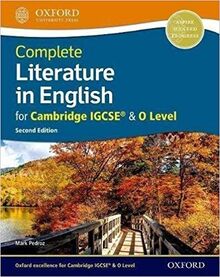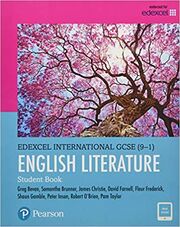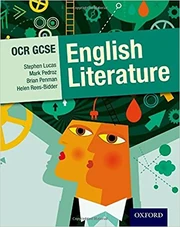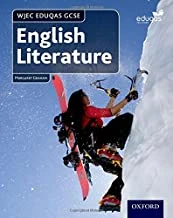Tag: Visual edit |
Tag: Visual edit |
||
| (23 intermediate revisions by 6 users not shown) | |||
| Line 1: | Line 1: | ||
| − | [[File:William Shakespeare 1609.jpg|thumb|294x294px]] |
+ | If you require the English Language page, please [[English Language#ENGLISH LANGUAGE|go here.]][[File:William Shakespeare 1609.jpg|thumb|294x294px]] |
| − | + | Home educators can choose GCSE or IGCSE English Literature, as neither have coursework. |
|
== '''Do you need a separate English Literature qualification?''' == |
== '''Do you need a separate English Literature qualification?''' == |
||
''Is it necessary to do separate exams in English Language and English Literature? What if you want to study English Literature at sixth form?'' |
''Is it necessary to do separate exams in English Language and English Literature? What if you want to study English Literature at sixth form?'' |
||
| − | It depends. The real gatekeeper for entry to many courses and jobs is GCSE or IGCSE English Language. If you only want to do one GCSE/IGCSE in English, then English Language is the one to do. |
+ | It depends. The real gatekeeper for entry to many courses and jobs is GCSE or IGCSE English Language. If you only want to do one GCSE/IGCSE in English, then English Language is the one to do. (More detail about English Language options [https://he-exams.wikia.org/wiki/English here]) |
| − | + | A separate English Literature qualification might be important is if you wish to study English Literature at a higher level. It might also be helpful if you want to study Drama. Some A-level English courses are combined literature and language, while others are literature-only. Some colleges specify that applicants need GCSE or IGCSE English Literature, particularly if the student wishes to study an essay writing subject, such as History, for A Level. Others have been more flexible. '''If it's important to your child to have the option of studying English A-level then contact local colleges to find out what their requirements are.''' |
|
| + | === One Family's Experience === |
||
| − | If your child definitely does not want to study English at A-level then there is no need to take English Literature at GCSE level, although of course it may be enjoyable and beneficial to do so anyway. |
||
| ⚫ | "My daughter did CIE English Language IGCSE. She got an A*. She decided English Lit IGCSE would be too tedious and restrictive...so she read and studied a range of literature of her own choice and wrote essays on short reflections on them. (internet gives plenty of ideas for essay titles..). She created a portfolio of work ready for her application to 6th form. As it was, they were not concerned to see it.. just talked to her and were quite happy to have her study AS and A2 English Lit with them. She is doing very well and is markedly better read than most of her peers! The good grade in Eng Lang was significant....she needed a B for the 6th form in that and I think the A* was persuasive when she did not have Eng Lit too." |
||
| + | === Choosing Texts === |
||
| − | One family's experience: |
||
| + | The specification for each exam will list the text options. Parents who have recently taken their child out of school may not realise that there are any options because their child's teacher will have decided on behalf of the whole class and the reasons for their choice may have been things like the availability of school resources and the teacher's preference. If your child has left school in Year 11, they may fimnd it easier to stick with whatever specification and text choices they have been preparing for. |
||
| ⚫ | |||
| + | However, if you are planning far enough in advance, you have lots of options! You will find that the choices in the GCSE English Literature exams are pretty much of a muchness, as they are determined by the UK government and are largely British writers. Shakespeare, for example, is compulsory. The IGCSE possibilities are more varied. The CAIE IGCSE for example usually has a good range of non-British writers in English and Shakespeare is not compulsory. |
||
| ⚫ | |||
| − | The most popular options for home-educated students are CIE IGCSE English Literature, and Edexcel IGCSE English Literature. The Edexcel specification changed to a new version, graded 9-1 , from summer 2018. |
||
| − | ==== '''New GCSEs - exams from 2017''' ==== |
||
| − | New GCSEs in English Literature available to external candidates include those from all major exam boards - AQA, OCR, Pearson Edexcel, etc. They are all graded 9-1. The downside to taking them now is that there are no past papers available so it is hard to practise for the expected format and question style. |
||
| + | Many children like to choose texts they already know and are fond of. This might be an advantage, but not always. Studying a text you love can sometimes kill your enthusiasm for it! Or, it may have the opposite effect and deepen the affection. |
||
| ⚫ | |||
| + | <br /> |
||
| ⚫ | |||
| ⚫ | |||
| + | The most popular options for home-educated students have traditionally been CAIE IGCSE English Literature and Edexcel IGCSE English Literature. However, since the new GCSEs were created, there is now a wider choice of Literature exams which home educated students can take. The GCSEs in English Literature available to external candidates include those from all major exam boards - AQA, OCR, Pearson Edexcel, etc. They are all graded 9-1. It should be noted that the GCSE courses are all strikingly similar in approach because they are controlled by the UK government. The IGCSEs are rather different, particularly the Cambridge (CAIE) one. One disadvantage of the CAIE exam is that the specification and component choices can seem complex. Do ask for help in the [https://www.facebook.com/groups/372952306164915 HE Exams Group] or the [https://www.facebook.com/groups/801773049841714 English Exams group], if you are not sure about anything. |
||
| ⚫ | |||
The specification most commonly taken by home-ed students is : |
The specification most commonly taken by home-ed students is : |
||
| − | [ |
+ | [https://www.cambridgeinternational.org/programmes-and-qualifications/english-literature-0475/ English Literature IGCSE] This specification replaced 0486 in 2020. |
| − | + | Don't worry about the lack of past papers, as the questions in this exam vary little from year to year. Generally speaking, there are 4 essays to write over the course of 2 exam papers. You can opt for 1 poetry anthology (15 poems), two plays and one prose text (novel or short story anthology), but an 'Unseen' question is possible in place of one of the plays. |
|
| − | '☀Learners develop an understanding of literal meaning, relevant contexts and of the deeper themes or attitudes that may be expressed. Through their studies, they learn to recognise and appreciate the ways in which writers use English to achieve a range of effects, and will be able to present an informed, personal response to the material they have studied.' |
+ | '☀Learners develop an understanding of literal meaning, relevant contexts and of the deeper themes or attitudes that may be expressed. Through their studies, they learn to recognise and appreciate the ways in which writers use English to achieve a range of effects, and will be able to present an informed, personal response to the material they have studied.' |
| + | [[File:510Yg+t9STL. SX395 BO1,204,203,200 .jpg|thumb|277x277px|alt=|center]] |
||
| − | |||
| ⚫ | |||
| ⚫ | |||
[https://www.amazon.co.uk/Cambridge-Literature-English-Coursebook-International/dp/1108439918/ref=dp Cambridge IGCSE Literature in English (Cambridge International IGCSE)]] by Russell Carey |
[https://www.amazon.co.uk/Cambridge-Literature-English-Coursebook-International/dp/1108439918/ref=dp Cambridge IGCSE Literature in English (Cambridge International IGCSE)]] by Russell Carey |
||
| − | [https://www.amazon.co.uk/Complete-Literature-English-Cambridge-IGCSE/dp/0198425007/ref=sr Complete English Literature for Cambridge IGCSE®]] by Mark Pedroz |
+ | [https://www.amazon.co.uk/Complete-Literature-English-Cambridge-IGCSE/dp/0198425007/ref=sr Complete English Literature for Cambridge IGCSE®]] by Mark Pedroz |
| + | Both the above textbooks are essential for learning correct exam technique. However, they are not 'notes' on the texts to be studied. The student will also need a copy of each of those. |
||
| ⚫ | |||
| + | <br /> |
||
| ⚫ | |||
The new specification graded 9-1 for exams from Summer 2018 is |
The new specification graded 9-1 for exams from Summer 2018 is |
||
| Line 50: | Line 53: | ||
[http://www.amazon.co.uk/Edexcel-International-English-Literature-ActiveBook/dp/0435046756/ref=pd_sim_b_1 Edexcel IGCSE English Literature Student Book with ActiveBook CD] |
[http://www.amazon.co.uk/Edexcel-International-English-Literature-ActiveBook/dp/0435046756/ref=pd_sim_b_1 Edexcel IGCSE English Literature Student Book with ActiveBook CD] |
||
| + | [[File:51+Yeurgm0L. SX393 BO1,204,203,200 .jpg|thumb|alt=|center]] |
||
| − | ===='''How many texts to study?'''==== |
||
| + | |||
| + | <br /> |
||
| + | |||
| + | === Edexcel GCSE English Literature(1ETO) === |
||
| + | This exam has two papers, sat in May/June. Pearson does not publish a textbook specific to this course but has quite a lot of materials on its website to help students and teachers. |
||
| + | |||
| + | Component 1: Shakespeare and Post-1914 Literature |
||
| + | |||
| + | Component 2: 19th-century Novel and Poetry since 1789 |
||
| + | |||
| ⚫ | |||
| + | |||
| + | [https://qualifications.pearson.com/content/dam/pdf/GCSE/English%20Literature/2015/teaching-and-learning-materials/PoetryAnthologySupplement_IncRefugeeWatermarked.pdf Poetry Supplement] |
||
| + | |||
| + | <br /> |
||
| + | === OCR GCSE English Literature (J352) === |
||
| + | |||
| + | |||
| + | OCR English Literature [https://www.ocr.org.uk/qualifications/gcse/english-literature-j352-from-2015/ information] There are 2 x 2 hour papers. |
||
| + | |||
| + | Component 1 Exploring modern and literary heritage texts (01) |
||
| + | |||
| + | Component 2 Exploring poetry and Shakespeare (02) |
||
| + | |||
| + | Poetry Anthology [https://www.ocr.org.uk/qualifications/by-type/gcse-related/gcse-english-literature-j352-from-2015-related/poetry-anthology-order-form-for-beta/index.aspx?id=english-literature-j352-from-2015 order form.] |
||
| + | [[File:51VowCvmB2L. SX393 BO1,204,203,200 .jpg|center|thumb]] |
||
| + | |||
| + | === AQA GCSE English Literature (8702) === |
||
| + | The specification may be found [https://www.aqa.org.uk/subjects/english/gcse/english-literature-8702/specification-at-a-glance here]. There are two papers. 1 x 1hr 45mins and 1 x 2hrs 15 mins. There does not seem to be a single comprehensive textbook available. |
||
| + | |||
| + | Component 1: Shakespeare and the 19th-century novel |
||
| + | |||
| + | Component 2: Modern texts and poetry |
||
| + | |||
| + | <br /> |
||
| + | === WJEC Eduqas GCSE English Literature (C720QS) === |
||
| + | The specification may be found [https://www.eduqas.co.uk/media/42ldm0wa/eduqas-gcse-english-literature-spec-from-2015.pdf here] There are 2 papers. 1 x 2 hrs and 1X2hrs 30 mins. |
||
| + | |||
| + | Component 1: Shakespeare and Poetry |
||
| + | |||
| + | Component 2: Post 1914 Prose/Drama, C19th Prose and Unseen Poetry |
||
| + | |||
| + | WJEC Eduqas GCSE English Literature: Student Book (WJEC GCSE English) : Graham, Margaret: Amazon.co.uk: Books |
||
| + | [[File:51hGy9HSw0L. AC UY218 .jpg|center|thumb]] |
||
| + | |||
| + | |||
| + | == '''<u>Resources and Support</u>''' == |
||
| + | For support from other parents whose children have studied, or are studying English Literature, there is a dedicated Facebook group. [https://www.facebook.com/groups/801773049841714/ English Language and Literature IGCSE for UK Home Educators] |
||
| + | |||
| + | '''[https://www.amazon.co.uk/gp/product/B08B73KK8L/ref=dbs_a_def_rwt_hsch_vapi_taft_p1_i1 Poetry Study Journal for GCSE/ International GCSE English Literature: A place to record your ideas and observations] '''"A guided journal to help you study the poetry for your GCSE/ International GCSE Literature exam" Written by home educator and English tutor, Dorothy Murphy. |
||
| + | '''[https://www.amazon.co.uk/gp/product/B08CJXRNBV/ref=dbs_a_def_rwt_hsch_vapi_taft_p1_i2 Short Story Study Journal for GCSE/ International GCSE Literature: A place to record your ideas and observations] ''' "A guided journal to help you study the short stories for your GCSE/ International GCSE Literature exam." Written by home educator and English tutor, Dorothy Murphy |
||
| − | ''In the spec of Edexcel English Literature 4ET0/01 there is one question to answer from the section on Drama, one from the section on prose. Within these sections there are several books to choose from, and there will be two questions per book on the paper.'' |
||
| + | Many home-educated students study this subject successfully using just the textbook and free online resources, but some find a distance learning course suits their family better, or want to use a tutor occasionally for marking essays or past papers. Course providers can be found on the [[Distance Learning Providers|Distance Learning Providers page]]. |
||
| − | ''It seems that online courses focus on one book from each section, which would still give a choice of two questions per section. But what if you study study two books per section, therefore giving a choice from 4 questions, not two, per section - is this too much work?'' |
||
| − | '''Reply from Catherine Mooney, English tutor:''' |
||
| − | <p>This question often crops up and here's my six penn'orth! I always suggest that my students study one prose and one drama, because in the time available you are going to be able to go into far more depth than if you were to study two. There is nothing to stop anyone studying/ reading for pleasure, of course, but for the purposes of bringing your understanding of a text up to the pitch you need for IGCSE exam, why double the workload? There are always two questions for each text on the exam paper, so isn't as though you're not going to get a choice.</p><p>Revision is also more onerous if you study 4 texts, as is past paper practice. I also feel that in the exam situation, when you have to choose between two texts and therefore 4 questions, it adds to the stress of the situation rather than alleviating it. It eats into time, too, having to weigh up which of 4 questions you can best do justice to what you've learned.</p><p>When people study a text for an exam they can be put off it for life! So that's another reason to minimise what you study and spend the time you WOULD have spent studying two extra texts, actually enjoying English (going to the Globe and seeing a play, or something nice!). Reading for recreation can get forgotten in the exam hurtle!</p><br />'''Comment from a member of the HE-Exams group:''' |
||
| − | <blockquote><p>My daughter did Edexcel IGCSE English Lit last year. (We used Catherine Mooney’s course.) She did most of the work in a year, and we found it plenty of work to cover one novel, one play and the poetry anthology in that space of time.</p></blockquote> |
||
''See also: [[English|English Language]] '' |
''See also: [[English|English Language]] '' |
||
''Return to [[Main_Page]]'' |
''Return to [[Main_Page]]'' |
||
Revision as of 08:06, 23 July 2021
If you require the English Language page, please go here.
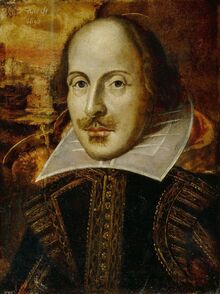
Home educators can choose GCSE or IGCSE English Literature, as neither have coursework.
Do you need a separate English Literature qualification?
Is it necessary to do separate exams in English Language and English Literature? What if you want to study English Literature at sixth form?
It depends. The real gatekeeper for entry to many courses and jobs is GCSE or IGCSE English Language. If you only want to do one GCSE/IGCSE in English, then English Language is the one to do. (More detail about English Language options here)
A separate English Literature qualification might be important is if you wish to study English Literature at a higher level. It might also be helpful if you want to study Drama. Some A-level English courses are combined literature and language, while others are literature-only. Some colleges specify that applicants need GCSE or IGCSE English Literature, particularly if the student wishes to study an essay writing subject, such as History, for A Level. Others have been more flexible. If it's important to your child to have the option of studying English A-level then contact local colleges to find out what their requirements are.
One Family's Experience
"My daughter did CIE English Language IGCSE. She got an A*. She decided English Lit IGCSE would be too tedious and restrictive...so she read and studied a range of literature of her own choice and wrote essays on short reflections on them. (internet gives plenty of ideas for essay titles..). She created a portfolio of work ready for her application to 6th form. As it was, they were not concerned to see it.. just talked to her and were quite happy to have her study AS and A2 English Lit with them. She is doing very well and is markedly better read than most of her peers! The good grade in Eng Lang was significant....she needed a B for the 6th form in that and I think the A* was persuasive when she did not have Eng Lit too."
Choosing Texts
The specification for each exam will list the text options. Parents who have recently taken their child out of school may not realise that there are any options because their child's teacher will have decided on behalf of the whole class and the reasons for their choice may have been things like the availability of school resources and the teacher's preference. If your child has left school in Year 11, they may fimnd it easier to stick with whatever specification and text choices they have been preparing for.
However, if you are planning far enough in advance, you have lots of options! You will find that the choices in the GCSE English Literature exams are pretty much of a muchness, as they are determined by the UK government and are largely British writers. Shakespeare, for example, is compulsory. The IGCSE possibilities are more varied. The CAIE IGCSE for example usually has a good range of non-British writers in English and Shakespeare is not compulsory.
Many children like to choose texts they already know and are fond of. This might be an advantage, but not always. Studying a text you love can sometimes kill your enthusiasm for it! Or, it may have the opposite effect and deepen the affection.
English Literature Specifications
The most popular options for home-educated students have traditionally been CAIE IGCSE English Literature and Edexcel IGCSE English Literature. However, since the new GCSEs were created, there is now a wider choice of Literature exams which home educated students can take. The GCSEs in English Literature available to external candidates include those from all major exam boards - AQA, OCR, Pearson Edexcel, etc. They are all graded 9-1. It should be noted that the GCSE courses are all strikingly similar in approach because they are controlled by the UK government. The IGCSEs are rather different, particularly the Cambridge (CAIE) one. One disadvantage of the CAIE exam is that the specification and component choices can seem complex. Do ask for help in the HE Exams Group or the English Exams group, if you are not sure about anything.
CAIE English Literature IGCSE (0475)
The specification most commonly taken by home-ed students is :
English Literature IGCSE This specification replaced 0486 in 2020.
Don't worry about the lack of past papers, as the questions in this exam vary little from year to year. Generally speaking, there are 4 essays to write over the course of 2 exam papers. You can opt for 1 poetry anthology (15 poems), two plays and one prose text (novel or short story anthology), but an 'Unseen' question is possible in place of one of the plays.
'☀Learners develop an understanding of literal meaning, relevant contexts and of the deeper themes or attitudes that may be expressed. Through their studies, they learn to recognise and appreciate the ways in which writers use English to achieve a range of effects, and will be able to present an informed, personal response to the material they have studied.'
Possible textbooks for CAIE Literature
Cambridge IGCSE Literature in English (Cambridge International IGCSE)] by Russell Carey
Complete English Literature for Cambridge IGCSE®] by Mark Pedroz
Both the above textbooks are essential for learning correct exam technique. However, they are not 'notes' on the texts to be studied. The student will also need a copy of each of those.
Edexcel IGCSE English Literature (4ET1)
The new specification graded 9-1 for exams from Summer 2018 is
Edexcel International GCSE English Literature (2016)
Past papers for Edexcel IGCSE / Certificate English Lit from Jan 2015
Dedicated textbooks for Edexcel IGCSE English Lit:
Edexcel IGCSE English Literature Student Book with ActiveBook CD
Edexcel GCSE English Literature(1ETO)
This exam has two papers, sat in May/June. Pearson does not publish a textbook specific to this course but has quite a lot of materials on its website to help students and teachers.
Component 1: Shakespeare and Post-1914 Literature
Component 2: 19th-century Novel and Poetry since 1789
Find the specification (syllabus) here. Edexcel/Pearson's GCSE English Literature
OCR GCSE English Literature (J352)
OCR English Literature information There are 2 x 2 hour papers.
Component 1 Exploring modern and literary heritage texts (01)
Component 2 Exploring poetry and Shakespeare (02)
Poetry Anthology order form.
AQA GCSE English Literature (8702)
The specification may be found here. There are two papers. 1 x 1hr 45mins and 1 x 2hrs 15 mins. There does not seem to be a single comprehensive textbook available.
Component 1: Shakespeare and the 19th-century novel
Component 2: Modern texts and poetry
WJEC Eduqas GCSE English Literature (C720QS)
The specification may be found here There are 2 papers. 1 x 2 hrs and 1X2hrs 30 mins.
Component 1: Shakespeare and Poetry
Component 2: Post 1914 Prose/Drama, C19th Prose and Unseen Poetry
WJEC Eduqas GCSE English Literature: Student Book (WJEC GCSE English) : Graham, Margaret: Amazon.co.uk: Books
Resources and Support
For support from other parents whose children have studied, or are studying English Literature, there is a dedicated Facebook group. English Language and Literature IGCSE for UK Home Educators
Poetry Study Journal for GCSE/ International GCSE English Literature: A place to record your ideas and observations "A guided journal to help you study the poetry for your GCSE/ International GCSE Literature exam" Written by home educator and English tutor, Dorothy Murphy.
Short Story Study Journal for GCSE/ International GCSE Literature: A place to record your ideas and observations "A guided journal to help you study the short stories for your GCSE/ International GCSE Literature exam." Written by home educator and English tutor, Dorothy Murphy
Many home-educated students study this subject successfully using just the textbook and free online resources, but some find a distance learning course suits their family better, or want to use a tutor occasionally for marking essays or past papers. Course providers can be found on the Distance Learning Providers page.
See also: English Language Return to Main_Page

